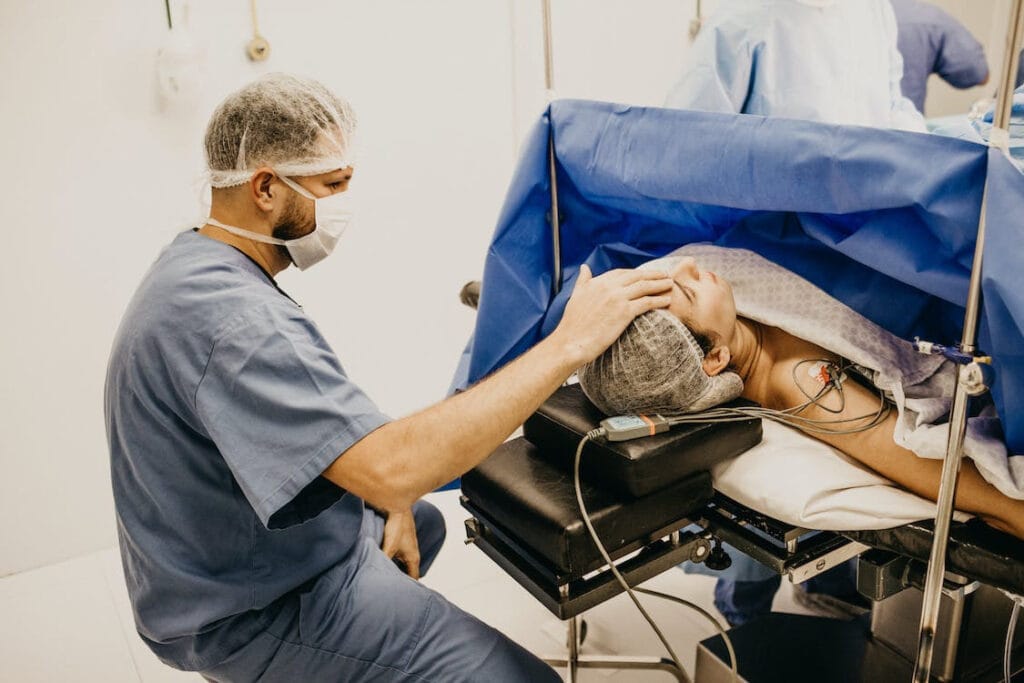There is widespread concern that general anesthesia leads to poor memory and attention, as well as a general decline in mental abilities. We decided to check whether such fear is justified.
Many Internet users complain about the deterioration of cognitive functions after anesthesia. Some note that their memory worsened so much so that they forget the names of friends and their ability to concentrate fell. Others say that they have become suffer memory lapses. Still others accused anesthesia “deteriorates the ability to learn and memorize new information, decreases concentration, and partially impairs speech, which negatively affects a person’s quality of life and professional activity.” At the same time, websites of medical institutions called deterioration of cognitive abilities after anesthesia myth, and themselves anesthesiologists they say that all adverse events pass for several days or weeks.
In everyday life, anesthesia often refers to any type of pain relief during medical interventions. However, from a scientific point of view anesthesia is an artificial, reversible state of depression of the central nervous system, in which sleep occurs, loss of consciousness, relaxation of skeletal muscles, reduction or shutdown of some reflexes, and loss of pain sensitivity. The main difference from other types of anesthesia, such as local anesthesia, is that under anesthesia a person sleeps, while with other types he remains conscious. Local anesthesia is also called regional, it is used mainly during treatment and dental implantation or laser vision correction, as well as for pain relief during childbirth and cesarean section. However, the patient usually has choosing which anesthesia will be used. Yes, dental treatment Maybe can also be carried out under anesthesia, especially if we are talking about a child or a person who is terribly afraid of dentists, and when removing appendicitis Maybe be, on the contrary, applied and regional anesthesia.
Moreover, when they talk about a decrease in cognitive abilities after surgery, they usually only mean anesthesia. And although the definition of general anesthesia stipulates that its effect on the nervous system is completely reversible, numerous animal research showthat anesthesia negatively affects the body. For example, drugs for inhalation anesthesia cause elderly mice show symptoms similar to Alzheimer's disease, and even at low concentrations of anesthetics is happening Neuronal death in newborn primates.
However, human studies have not given such a clear result. In 2016, the Oxford Memory and Aging Project published data from our observation of elderly patients (average age 72 years) who have undergone surgery under anesthesia over the past four years. It turned out that predisposing factors to a more rapid decline in cognitive abilities were age, male gender, low results of preliminary tests, genetic characteristics (the presence of the ɛ4 allele of apolipoprotein E, which connected with an increased risk of Alzheimer's disease), as well as diseases affecting the cognitive sphere and already diagnosed at the time of anesthesia. Those older people whose memory and cognitive functions were normal before surgery were not affected by the negative effects of anesthesia.
Study A 2016 study in Denmark also showed no significant difference in cognitive abilities between middle-aged (at least 45 and no over 70 years of age) and elderly (70 years of age or older) twin pairs, one of whom had surgery under anesthesia. The researchers concluded that "preoperative cognitive functioning and comorbidities were more important for cognitive status in middle and old age than surgery and anesthesia." Monozygotic twins (that is, developed from one zygote, resulting from the fusion of one egg and one sperm) have * a completely identical set of genes, so studies involving such pairs provide a clear answer to the question of what is predetermined by genes and what is the result of some influences during life.
In 2018, scientists from the University of Wisconsin - Madison (USA) dialed A group of 964 volunteers with an average age of 54 years were tested on their memory and executive function, that is, the ability to plan events and focus on an object. Four years later, when 312 participants had undergone some kind of surgery under anesthesia, the scientists again asked all of them to take the tests. It turned out that those who were under anesthesia during this time experienced a decrease in immediate memory by one point, with a possible maximum test result of 30 points. However, such dynamics of results cannot be called significant - Dr. Kirk Hogan, one of the researchers, sure, that the changes are “asymptomatic and below the threshold of awareness of the person himself.”
Dr. Beverly Orser, Professor of Physiology and Anesthesia at the University of Toronto, draws attention to the complexity of such studies, because in addition to anesthesia, a person is exposed to a number of other influences. For example, when he breaks his leg, the body releases inflammatory chemicals called cytokines, which enter the brain and impair its performance. If a person requires surgery under anesthesia after such an injury, it will be impossible to determine whether the anesthesia, the initial injury or surgery and the long hospital stay afterwards are to blame for further cognitive decline. Orser's position correlates well with described post-intensive care syndrome (PICS) - this can occur in patients after a long hospital stay due to serious illness. Symptoms of this syndrome include not only physical changes (muscle weakness, trouble sleeping, difficulty breathing) but also cognitive changes (forgetfulness, decreased alertness, difficulty concentrating, and decreased ability to plan).

For cognitive impairments that occur after surgery under anesthesia, there is even a Name — postoperative cognitive dysfunction (POCD), from 10% to 30% of patients over 65 years of age can experience its symptoms even six months after surgery. But scientists do not have a clear answer whether the anesthesia drugs themselves or the subsequent inflammatory response to surgery are to blame for such changes in older people.
There is also no clear understanding of whether such substances affect the children's brain. Some studies showthat children who were repeatedly exposed to anesthesia before the age of three are more likely to inclined to future cognitive deficits, memory and speech problems, and the development of attention deficit hyperactivity disorder (ADHD). Other pay Please note that children who require multiple surgeries at such a young age may already be predisposed to neurodevelopmental problems due to injuries or illnesses from which they suffer.
Thus, on the one hand, science knows cases of cognitive deterioration after operations under anesthesia, which occur in both pediatric patients and the elderly. If we are talking about a person under 65 years of age without neurological disorders, then the risk of experiencing cognitive impairment after anesthesia is minimal. On the other hand, not a single study confirms that such changes occur due to the drugs that put patients into a state of anesthesia. Researchers point out that, in addition to the anesthesia itself, memory and alertness can be affected by being in the hospital, the diseases that required surgery, as well as special inflammatory agents - cytokines that damage brain cells.
*Science known There are only two cases of the birth of so-called semi-identical twins, when two sperm fertilize one egg. In these cases, the children had 100% of their genetic information from their mother and 50% or 78% from their father. The likelihood of a normal pregnancy in this case is so small that in numerous studies of the genetic information of twins, no more such pairs were found.
Cover image: Medline Plus
If you find a spelling or grammatical error, please let us know by highlighting the error text and clicking Ctrl+Enter.






